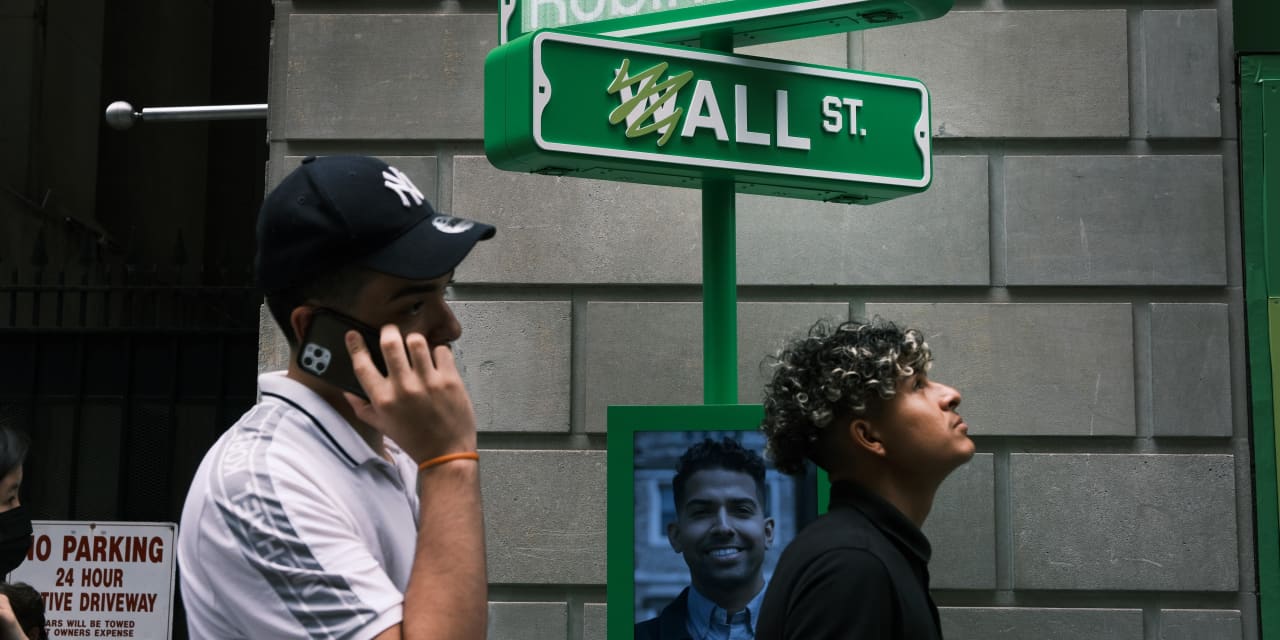Burned by Robinhood Missing the S&P 500? Learn How to Profit Next Time

Stock investors are making too big a deal of Robinhood Markets not being added to the S&P 500.
Despite weeks of speculation that Robinhood would be added to the S&P 500 S&P Dow Jones Indices last Friday decided against the move . Notwithstanding short-term traders’ disappointment with the announcement, being added to the S&P 500 does not have the significant price impact on a stock that it once did.
Marco Sammon and Robin Greenwood, both professors at Harvard Business School, analyzed all the companies added to the S&P 500 at any time between 1980 and 2020. In their study, which was published in April in the Journal of Finance , they report a dramatic downward trend in the average announcement-day gain of stocks added to the U.S. stock-market benchmark.
In contrast to the 1990s, when an addition meant an average one-day gain of 7.4%, the impact declined to just 0.8% in the 2010s (see accompanying chart). The professors refer to this decline as the “disappearing index effect.”
In Robinhood’s case, the stock far outpaced the market in the weeks leading up to the S&P Dow Jones announcement, gaining 53.8% over the month through June 6, versus 7.2% for the S&P 500. But as Greenwood wrote in an email, it’s difficult to determine how much of this increase was caused by speculation that the stock would be added to the benchmark index. “It is hard to disentangle the anticipatory effects of going into the S&P 500, or any index for that matter, with the fact that going up in price makes the stock more likely to be added,” he said.
‘Buy the rumor’
The preannouncement runup appears to be a classic case of “buy the rumor, sell the news.” Keep this in mind the next time rumors are spread around Wall Street that a stock may be added to the S&P 500 (or any other widely followed benchmark). If you decide to jump on that rumor-mill bandwagon, you should consider selling immediately prior to when the actual addition decision is announced. You likely will be leaving no more than a small additional gain on the table even if the company does get added.
Moreover, by selling before the announcement you will avoid the inevitable pullback that occurs if the company is not added, to which disappointed short-term traders will react by dumping the stock. That’s what happened with Robinhood shares, which at one point in early Monday trading had tumbled 8% from their Friday closing price. But, consistent with what the professors found, the market by Monday afternoon had realized its overreaction — and the stock, while still down on the day, had recovered somewhat.
Why was Robinhood snubbed?
Many on Wall Street also are speculating as to why Robinhood was not added to the S&P 500. They can’t do anything more than speculate, however, since S&P Dow Jones indices is not saying.
Furthermore, since no stocks were added to or removed from the benchmark in last Friday’s quarterly rebalancing, it’s impossible to compare Robinhood to any of the companies currently in the index that were being considered for replacement had Robinhood been added.
In any case, even if Robinhood had been added to the S&P 500, it would have had little impact. That’s because the S&P 500 is a market-cap-weighted index, and Robinhood therefore would have had just a 0.13% weighting.
Mark Hulbert is a regular contributor to The News Pulse. His Hulbert Ratings tracks investment newsletters that pay a flat fee to be audited. He can be reached at mark@hulbertratings.com
More: The S&P 500 isn’t changing for now. Did this company get snubbed?
Also read: Summer doldrums are slowing stock trading — but don’t sell a dull market short
Post a Comment for "Burned by Robinhood Missing the S&P 500? Learn How to Profit Next Time"
Post a Comment